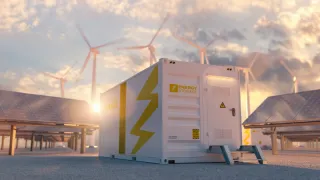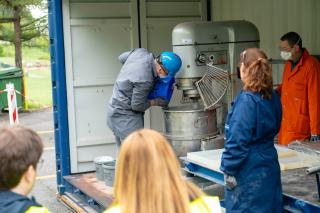Aluminium: The Critical Raw Material Act’s Blind Spot
Aluminium: The Critical Raw Material Act’s Blind Spot

By Bernd Schäfer | EIT RawMaterials
The EU’s Critical Raw Materials Act (CRMA), unveiled earlier this year, is a landmark piece of legislation in Europe’s journey towards a more sustainable and competitive industrial future. Despite its promising elements, the current proposal omits a component that is key to Europe’s smooth transition to a greener economy and increased industrial resilience: aluminium.
Bernd Schäfer is CEO and Managing Director of EIT RawMaterials.
As Europe grapples with meeting its ambitious climate and energy goals, the demand for aluminium is predicted to surge. Forecasts project a 30% increase in European demand for aluminium by 2040, driven predominantly by the growth of electric vehicles, solar power and electricity networks. It is also widely used in aerospace, defence, medical, packaging and building applications. All these sectors rely on the unique properties of aluminium to enhance efficiency and reduce their carbon emissions.
The European Commission, in its Impact Assessment and JRC Foresight Report, has already underscored its strategic importance in the twin transition. Given the significance of this recognition, aluminium should be part of the CRMA strategic raw materials list. Now is the moment for aluminium to be rightfully added to the list, to acknowledge its indispensable role in the EU’s twin transition and securing a stable supply to meet the growing demand.
While global aluminium production is anticipated to match the surging demand, it’s worth noting that over two-thirds of the world’s aluminium production comes from non-market economies, posing a serious risk which could impact key European industrial ecosystems. The opportunity to reduce our dependencies from non EU aluminium sources, to prevent potential detrimental effects, is now.
By recognising aluminium as a strategic material, sends a resounding message to investors to continue investing in European production and recycling. The aluminium sector currently attracts 1 million direct and indirect jobs across the whole value chain but this addition would further foster job creation and strengthen our industrial base. Such a step would help reverse the alarming trend of EU smelters shutting down, being idled or reducing production.
It is important to note that since the start of the energy crisis, this sector has witnessed a decline of nearly 50% in the EU’s primary aluminium production capacity.
And yet, European-made primary aluminium production adheres to the highest ESG standards and has a carbon footprint that is less than half the global average. To therefore optimise Europe’s aluminium industry is not just an economic orstrategic concern but also a significant environmental one.
Moreover, we would unleash additional incentives for a circular economy, whilst boosting recycling, effectively reducing Europe’s carbon emissions and accelerating our progress towards climate neutrality. Aluminium can be recycled over and over again without any degradation of its inherent properties, and recycling of it requires only 5% of the energy necessary for producing virgin metal.
In summary, with aluminium demand in Europe set to surge, securing a sustainable domestic supply is not just desirable, it’s imperative. The strategic, economic, and environmental advantages that would follow are plainly evident. As negotiations on the CRMA continue, the time is now for co-legislators to reconsider and to formally acknowledge the strategic value of aluminium by incorporating it into the CRMA’s ‘Strategic Raw Materials’ list. This move wouldn’t just be another line in a piece of legislation. It would be the EU staking its claim on a sustainable, resilient future, while also boosting our industrial competitiveness, strengthening our technological advantage and creating jobs.
The inclusion of aluminium in the CRMA will clear the path for a smooth transition towards a green and digital economy.
This opinion piece was published on the EURACTIV platform - here you can find the original article


